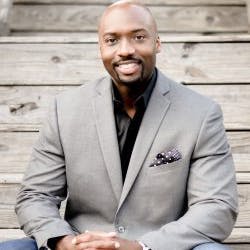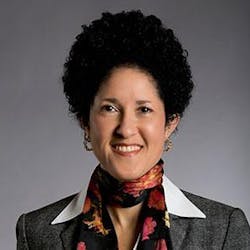What Is Knowledge?: Thoughts from a Baha’i Working Group in Africana Studies
- Details
- Resources
This roundtable emerges from an Association for Bahá'í Studies seminar focusing on disciplinary “methodology,” broadly conceived. Among those participating in the seminar was a group of scholars and artists involved in Africana fields. While exploring the premises and commitments of methodologies that hold sway in Africana Studies, the group repeatedly returned to a discussion of the concept of “knowledge,” which will anchor the remarks of roundtable participants. For the Africana Studies roundtable, a discussion of the definition, the value, and the consequence of knowledge will follow from Shoghi Effendi’s insistence that “the Cause needs more Bahá’í scholars... who can correlate its beliefs with the current thoughts and problems of the people of the world.” Roundtable discussants will foreground the “problems of the people” as they also reflect on the implications of statements by the Universal House of Justice indicating that “the enterprise of building a prosperous world civilization” requires that all people be involved in the “generation, application, and diffusion” of “knowledge.” Informed by their work in Africana Studies, which often encourages expansive definitions of knowledge, the discussants will think through questions like these: What constitutes knowledge? What is the purpose of our pursuit of knowledge? How can we develop knowledge-advancing praxis programs that are truly inclusive? How do we reconcile individualizing paradigms of knowledge-production that shape academia and romanticized intellectual pursuits, with the collectivist ideal of knowledge-production that can be discerned in guidance from the Universal House of Justice?
Anthony Outler
Anthony Outler, PhD, has worked as a K-12 educator in predominately Black schools in the Atlanta area for the past 17 years and currently serves as a middle school Assistant Principal in Decatur, Georgia. He earned his undergraduate degree and his PhD in Educational Policy Studies with a concentration in Social Foundations of Education from Georgia State University. His work in schools is an extension of his community activism--activism that is concerned, primarily, with using culturally responsive, emancipatory educational practices to empower youth to transform their communities. He believes that the purpose of education is to empower youth to identify, resist, and ultimately abolish oppressive systems and institutions in order to build a better world. Dr. Outler also works with adult learners as a faculty member for the Wilmette Institute course Anti-Black Racism in the United States.

Angelita Reyes
An award-winning author, educator, and public speaker, Dr. Angelita Reyes is a distinct voice in today’s global arena of new approaches for social justice. She has published extensively and presented her work for racial justice and ideas of social transformation at numerous national and international conferences, work-shops, and seminars.

Layli Maparyan
Layli Maparyan, PhD, is the Katherine Stone Kaufmann ’67 Executive Director of the Wellesley Centers for Women and Professor of Africana Studies at Wellesley College. She holds a PhD in psychology from Temple University. Her books include: The Womanist Reader (2006), The Womanist Idea (2012), and Womanism Rising (2020).

44th Annual Conference
Beyond Critique to Constructive Engagement
The views expressed in this recording are those of the presenters and do not necessarily represent the views of the Association for Bahá’í Studies, nor the authoritative explications of Bahá’í writings.